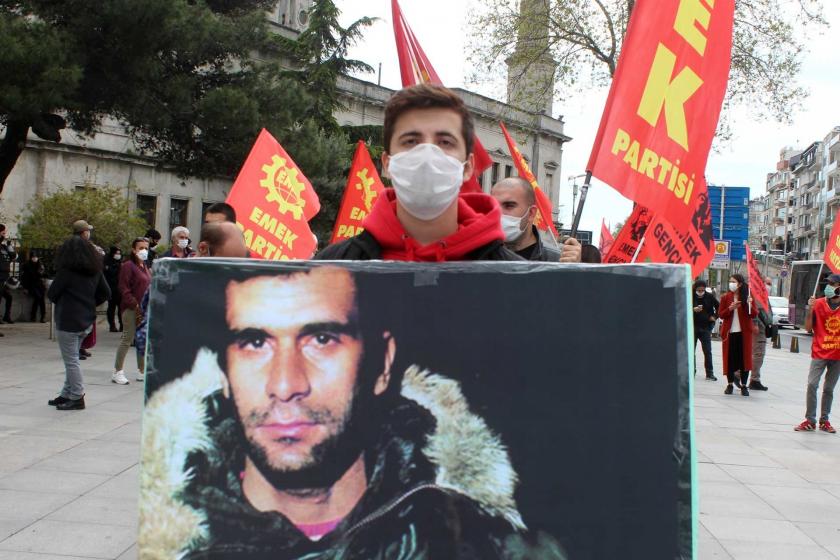Meltem AKYOL
İstanbul
For a long time, mention of human rights in Turkey has brought to mind torture, abduction, the absence of a fair trial, lengthy detention, detention of the sick, mothers taken from natal units to jail, journalists who go unreleased despite release orders and politicians. And the list grows longer each 10 December.
Human Rights Foundation of Turkey President, our columnist Şebnem Korur Fincancı, says, “The practice of sweeping human rights violations under the carpet and denying them with a hint of shame has been replaced with the practice of standing firm and putting human rights violations on show and thereby engendering fear among people.” Fielding my questions, Fincancı pointed to the relation between much of the criticism directed at the government, from judicial independence to security-oriented policies, and rights violations.
THE WORLD IS FAR MORE DYSTOPIAN THAN THE DYSTOPIAS WE WRITE
What is your take on Turkey’s human rights’ report card? What can you say by way of comparison with previous years?
In fact, we used to say, “Its human rights report card is full of zeros. Turkey has flunked the grade,” but currently, never mind flunking the grade, in my view Turkey has now been expelled from the group of countries that are based on human rights and have relatively democratic practices, because the political will has further stepped up its aggressiveness in recent times fearful of relinquishing power.
This is the situation, not just in Turkey, but in the world. We know that capitalism is undergoing one of the severest crises it has ever experienced. And, in such periods, authoritarian regimes attain greater strength, the drift to the right becomes more pronounced and conservative or racist parties grown in strength.
The start of the twentieth century was a depressive period of severe crises and a period in literary terms in which dystopian writing came greatly to the fore and utopias were absent. This is what the twenty-first century will be like, too, because the world has in fact itself assumed a more dystopian state than the dystopias we have written until now. And I think this is how the first decades of the twenty-first century will pass; not just for Turkey but for the whole world. But, one part of me also believes that we will make it through this process to a period before long in which utopias will once more become writeable. With an eye on the movements in Lebanon, Iraq, Chile, Spain and France.
THERE ARE THREE BASIC BREAKING POINTS
If we look at Turkey in particular, we have our breaking points, ones at which rights violations intensified greatly.
Yes, we can speak of three basic breaking points over the past ten years. 2013 – Gezi, 2015 – the 7 June elections and 2016 – the coup attempt. Gezi gave the political will to realize that power was essentially slipping from its hands. Sensing that it was not as powerful as before, it started to strike a kind of posture involving more aggressive behaviour. At the same time, this period also incorporated a period named the “solution period” in which solution discussions were taken forward and there were a variety of negotiations to which we were not privy – take the example of the Oslo process.
In the ensuing period, the political will totally lost its power in the 7 June 2015 elections. And, starting with the exploding of bombs and continuing with curfews, a violent period was ushered in marked by the kicking over of the table devoted to the solution process. There were such threats as, “Give 400 [seats] and let this business be resolved in calm.” Then the 1 November elections. The 2015 curfews were a far more menacing affair and this was how we reached 2016.
In what transpired following the 15 July coup attempt, efforts aimed at destroying all voices of opposition in Turkey and restructuring the state attained came into full view. We saw this transition take place outright in many areas from the judiciary to universities and pre-university education to health. One after another, trustees were appointed to municipalities. One by one, civil organizations in the Kurdish provinces and organizations which were in some way documenting these human rights violations or trying to repair the damage these violations had caused were closed. Arrest periods changed, various protective mechanisms were disengaged and the notion of human rights was dismissed. And, as a consequence, the practice of sweeping human rights violations under the carpet and denying them with a hint of shame has been replaced with the practice of standing firm and putting human rights violations on show and thereby engendering fear among people.
Well, what has this change led to?
We found ourselves up against a mindset that prohibited people from going into the streets and pursuing their democratic rights, eliminated the right to strike and denied opportunities to struggle through independent and democratic means. Hence, it can be said on looking retrospectively that a more institutionalized state structure – we can debate and criticize as to its merits and demerits – was replaced by a more tribal structure. Forget the single man, too – Turkey was turned into a totality of huge tribes led by religious brotherhoods. In such an environment, the ability to operate monitoring mechanisms and circumvent human rights abuses became unfeasible, as did ensuring that human rights violators could be held to account.
BECAUSE THEY KNOW THEY WILL NOT BE PROSECUTED
What you are saying also fits in with criticism of arbitrariness and a lack of judicial independence. What relationship is there between the state of the judiciary and rights abuses? Does mistrust in the judiciary make it harder to expose violations?
The violator is going to continue these violations if they feel themselves to be secure. And, unfortunately, they think they can commit graver violations because they think they will be protected under circumstances where there is no judicial independence. Alongside this, there is a situation in Turkey in which legislation has been passed under a decree with the force of law whereby enforcement officials are to be given impunity against crimes committed in the course of combatting terrorism. I mean, there used to be impunity, and now impunity has been legalized.
The reply to the question of whether the judiciary in Turkey has ever been independent is “no.” But a far more crucial thing has happened in this period – a massive fear has been engendered among people and people have been threatened with recourse to their futures and families and living conditions. This is because more than six thousand judges and prosecutors have been removed from their posts under decrees with the force of law. Those currently serving as judges and prosecutors act out of fear and think they must obey whatever command comes. Like those in Nazi Germany at the end of the 1920’s and start of the 1930’s. And so they obeyed orders and this was a process that led to banal evil. Are they without responsibility? Not a bit of it. Of course they are responsible. It is a stance that entails responsibility for banal evil.
Let us look at what Ahmet Altan went through: the court releases him, the prosecutor objects and he is redetained. There are countless such examples. There is the example of Alparslan Kuytul. He was released, but everyone was waiting wondering if he would come out or they would order his redetention. This, at the same time, is very serious mental trauma. You say, “I’ve been freed,” your family members set out from here and there and make their way to the front of the prison and he is rejailed without even coming out of prison. Or he steps out and the gendarmerie come and raid his home, arrest him and he is detained. Similarly, the Demirtaş family had an accident last week while going from Diyarbakır to Edirne on a prison visit. The placing of a person in a prison so far from the place where they live is actually in itself torture. This is torture, not just of that person, but their whole family.
That is, torture does not just involve kicking, hitting, crude violence or electricity – this is called pure torture. Things are in a dire state and on inspection, there is no need for orders. It comes down to the prosecutor looking to the judge and the judge to the Interior Minister or Justice Minister. That is why I called it a tribal state. Whoever is stronger determines what decision will emerge and what process will be followed. Of course, this causes an unbelievable loss of the sense of justice, a lack of justice. And this leads to people gearing up for action to get justice with their own hands, to an increase in violence.
TRUE SOLIDARITY MUST BE FORGED
As the violations increase, people are afraid, and as fear increases, they grow silent. Silence brings ever greater authoritarianism. What is the way to break this vicious circle?
We are in a period of such severe economic crisis and organized struggle is not happening. There is no organized labour struggle; there are a very limited number of opposition unions and their very limited number of members. The wagers of the rights struggle are waging a very fragmented struggle. All the tools the rulers are using are in fact devoted to rule by dividing and fragmenting. There is thus a need to forge true solidarity, not one restricted to external pronouncements of, “I am engaging in mutual solidarity with you.” Solidarity needs to be forged between feminists and trans individuals’ rights organizations or workers’ unions and white-collar staff organizations. I mean, there is no great possibility of bringing about change without the solidarity of organizations that are engaged in waging individual rights struggles. Indeed, this attains even greater important under conditions in which violence has intensified to this degree and there is an attempt to silence people with security policies.
WE ACTUALLY JUST SEE PART OF THE PICTURE
From which circles do rights violation applications come most frequently? What kind of change is there in the profile here as opposed to past years?
For one thing, now, the Kurds are still this country’s unwanted kids. There are a great number of initiatives focusing on them, and Kurds still figure prominently among applications made both to us and the Human Rights Association. Since the structures we call the opposition circles which identify themselves as left-wing put up greater opposition and have a stronger presence in the field, they tend to suffer rights violations. They thus also figure prominently in our profile.
We can also number groups we can describe as being prone to violence here: there are applications from women, homosexuals and trans individuals. There have certainly been applications in small numbers from people branded with “FETO” accusations and groups that are closer to Islamist circles. For example, you will remember there was one to the Human Rights Foundation of Turkey concerning a teacher who was arrested in the immediate aftermath of the coup attempt and lost his life while suffering a heart attack under arrest. His family applied to us and got a report from us. However, the upshot is that applications made by Islamist circles have not been long lived, that is, they have not followed them up or were forced to withdraw because the threats were very harsh.
Well, is it possible to see the true picture as concerns violations in such periods of oppression in which people experience difficulty in explaining what they have been through and seeking their rights?
We only actually see a small part of the picture. There are groups that are wary of passing on the truth out of the concerns they feel. This is a most understandable thing because there are very harsh threats. Sometimes there are negotiations or people are turned into agents. In fact, going forward an arrangement known as secret witnesses has been set up and it is even unclear what has happened and there is moreover prompting and duress in this direction. So, we see that the extent of torture and rights violations is severe but there are times when we are at a loss to be able to say how grave and widespread they are.
CONDITIONS IN JAIL ARE VERY ARDUOUS
A large number of rights violation reports have been coming from jails recently. What do you say about the situation in jails? Are you able to conduct examinations?
Permission is now denied to civil organizations that previously had the opportunity of conducting examinations in jails. The sole thing that makes it possible to glean what is going on are letters coming from prison. They write letters to the Human Rights Association, Human Rights Foundation of Turkey and Turkish Medical Association, whichever address they can find easily and wherever they can get in touch with.
Conditions are very arduous; in prisons, following the crushing treatment at F-types, prisoners acquired various rights such as the exercising of social rights and the right to books, letters and phone calls and these have all been taken back one by one. And, of course, now there are T-types not F-types. Far more horrific prisons have been made and continue to be made because what this is about is engendering fear among the populace and stifling the voices of opposition.
You see, in the Penal Execution Law the detaining and imprisoning of pregnant women and women who have just given birth is subject to rules. Not even this is implemented and they slap on handcuffs at the vary natal unit door and take them off. Especially in pious circles, sacredness is attached to the pregnancy process and motherhood. Even this value has been lost.
Somebody else was seriously ill in jail and lost his life, you know, and they did not admit him to the mosque. The imam was going to perform funeral prayers. I mean, not only the imprisoned person, but their family, too, are tortured.
VIOLENCE WILL INCREASE IN A COUNTRY IN WHICH ENMITY HAS BEEN STOKED UP TO THIS EXTENT
Do you draw a parallel between the increase in security-oriented policies and rights violations?
We are actually a country that has been at war for forty years. Over the forty-year war, virtually all men in Turkey have been part of this war process and have suffered injury from it in one way or another. They in any case return home injured and, on top of this, the sense that justice is elusive makes it easier for people to use violence or be the victims of violence because it gives rise to silence. These are major contributors to intrafamily violence and male violence towards women. In such a violent country, in a county that is warring and clashing to this extent and in which enmity has been stoked up to this extent, all groups have inevitably started to see one another as enemies and men, sensing themselves to be under threat from the power holders, in turn direct violence towards women and children.
Research has shown that particularly soldiers who served in the United States’ occupation of Afghanistan and then the Iraq occupation episode underwent massive trauma during the war and the processes of adaptation to normal life malfunctioned on their return. And the research showed this trauma to be not just mental trauma, but at the same time moral trauma. People undergo a loss of values.
You see, the same thing applies to Turkey and this is the result of a forty-year war. After a while you retain no values. What are these values? Well, there were a variety of values such as above all protecting people who have little strength, protecting nature and animals and similarly protecting the rights of all living beings. We had such a value as solidarity and one of the defining themes of this land was solidarity. We have long since lost the value we called solidarity. How do we know this? For example, when there were arrests, detentions and so on in Islamist circles following the 2016 coup attempt, not even their families stood by their children. I mean, among us even if there was nobody there was the family, and events played out in which not even that family solidarity was displayed. If people lack a critical viewpoint and cannot get a good reading of how things stand, they can very rapidly sacrifice their values. The intensification of violence to this extent and the insecurity is very closely related to the security-oriented policies. Because the security-oriented policies are the policies of war, the policies of occupation. You do not just subject each country you occupy to devastation; your own people, too, are devastated. And they come and devastate your country.
(Translated by Tim DRAYTON)
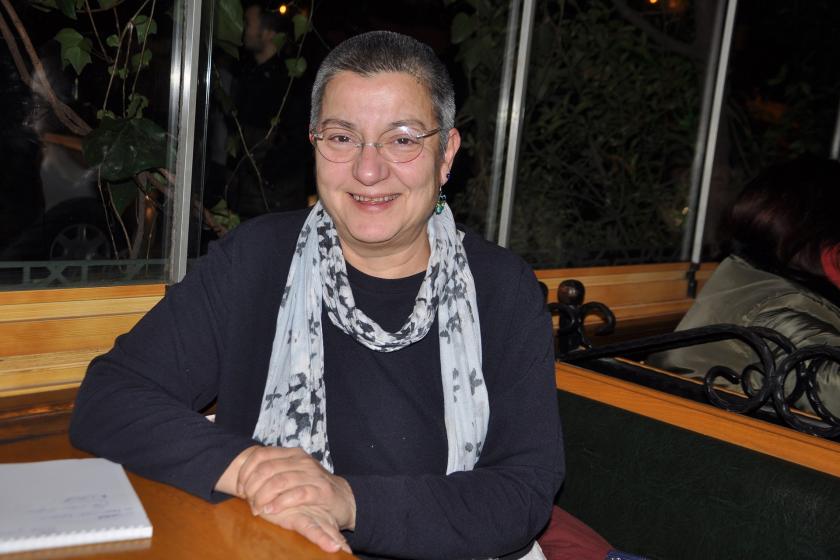
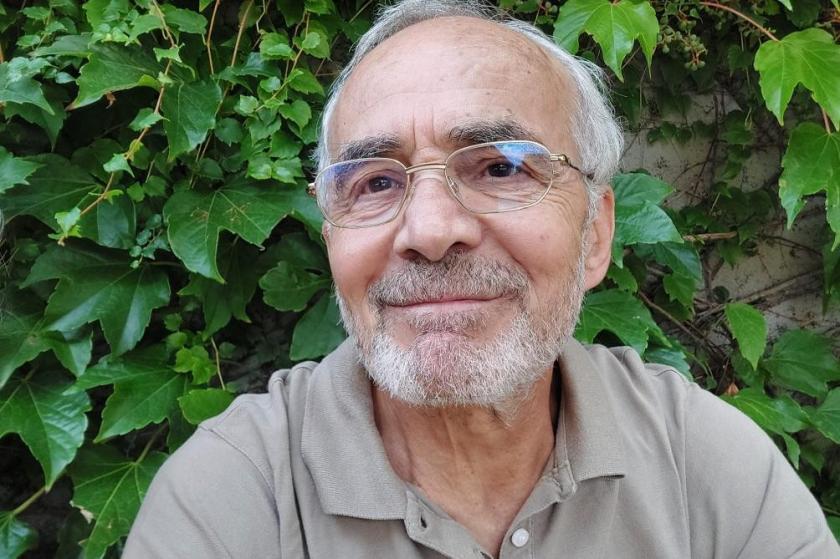
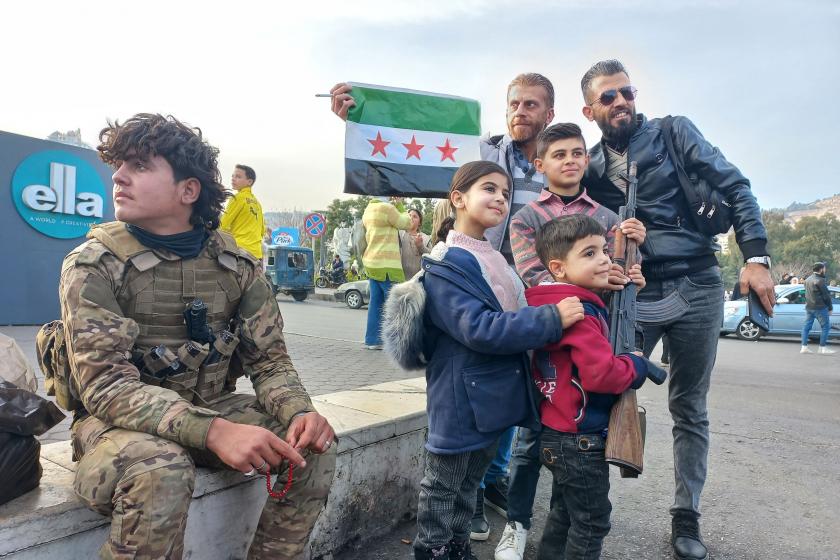
 Hediye Levent
Hediye Levent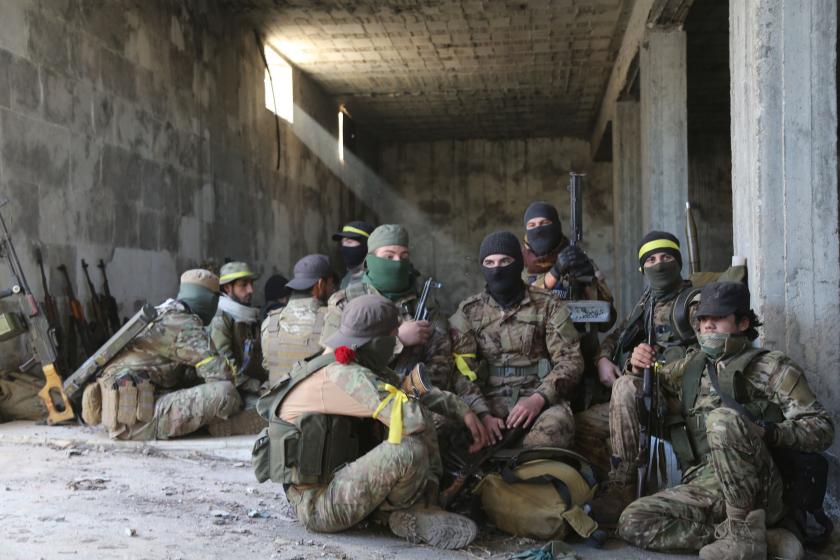
 Yusuf Karadaş
Yusuf Karadaş